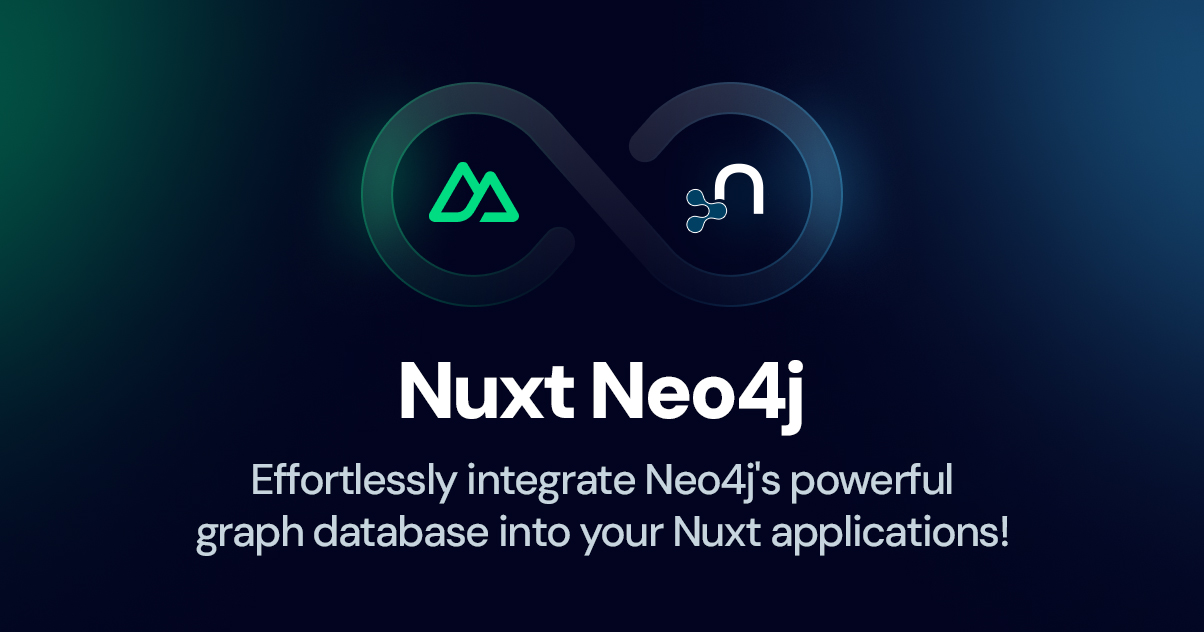 nuxt-neo4j
nuxt-neo4j
nuxt-neo4j
Effortlessly integrate Neo4j's powerful graph database into your Nuxt applications!

Nuxt Neo4j
Effortlessly integrate Neo4j's powerful graph database into your Nuxt applications!
Features
- Effortless Integration: Set up a database with just one line of configuration.
- DevTools Support: you will be able to access neo4j's workspace from Nuxt DevTools!
- Easy to Use: The module provides a
useDriverfunction for easy interaction with the database. - Developer Experience: this module is using the official
neo4j-driverso it has full support of typescript.
Setup
- Add
nuxt-neo4jdependency to your project
# Using pnpm
pnpm add -D nuxt-neo4j
# Using yarn
yarn add --dev nuxt-neo4j
# Using npm
npm install --save-dev nuxt-neo4j
- Add
nuxt-neo4jto themodulessection ofnuxt.config.ts
export default defineNuxtConfig({
modules: [
'nuxt-neo4j',
],
})
That's it! You can now use Nuxt Neo4j in your Nuxt app ✨
Configuration
export default defineNuxtConfig({
neo4j: {
uri: 'string', // @default: process.env.NEO4J_URI
auth: {
type: 'string', // @default: 'basic'
username: 'string', // @default: process.env.NEO4J_USERNAME
password: 'string', // @default: process.env.NEO4J_PASSWORD
},
},
})
Usage
Once configured, you can start using the Neo4j driver provided by the module in your Nuxt application. Here's an example of how to use it:
export default defineEventHandler(async () => {
const { records } = await useDriver().executeQuery('MATCH (q:User) RETURN q LIMIT 25;')
return records
})
for more information please check neo4j documentation
Development
# Install dependencies
pnpm install
# Generate type stubs
pnpm run dev:prepare
# Develop with the playground
pnpm run dev
# Build the playground
pnpm run dev:build
# Run ESLint
pnpm run lint
# Run Vitest
pnpm run test
pnpm run test:watch
# Release new version
pnpm run release



